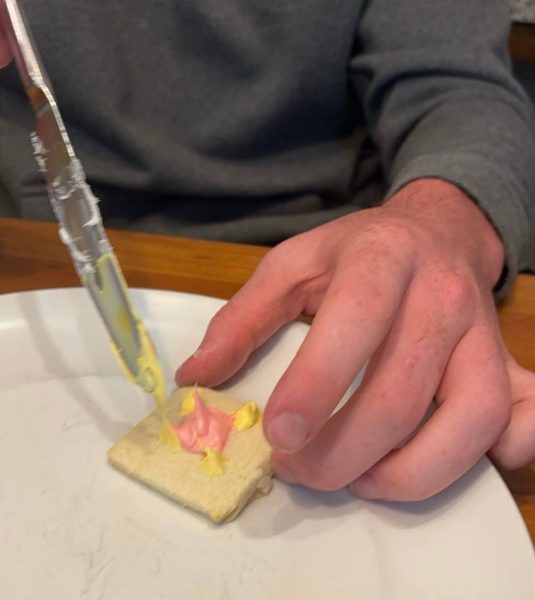Fidget Spinners: ADHD treatment or toy?

The fidget spinner, marketed as a treatment for ADHD, is known to most people as a kids toy.
In any given day of class at Central, you are more than likely to encounter a fidget spinner: a small toy with three weighted prongs that spin around a bearing. It was originally meant for those with ADHD (Attention Deficit Hyperactivity Disorder) in an effort to help individuals with “fidgets,” but many argue it has become more than that. Schools across Illinois have even banned fidget spinners because of how distracting they have become. Although the full-on banning may seem a bit unreasonable, the thought makes sense.
For starters, not everyone who owns a fidget spinner needs it for its intended purpose. I have twin brothers who are six, with two fidget spinners each, and they don’t necessarily need them. Granted, my brothers (along with most other six-year-olds) have some degree of attention deficit and hyperactivity, but it’s not to the extent where it would get diagnosed. And yet, they spend a lot of their time spinning away aimlessly to the point where it has hurt their concentration. They do it for fun, not for medical purposes.
“I think they have become a toy and a distraction for those who don’t need them,” said Ms. Sally Phillip, activity director.
And that right there is the problem with fidget spinners. It’s the fact that those who don’t need them are using them. When focus and attention is important, for instance, when in conversation or in class, the fidget spinner has been a distraction. Many spend their time spinning away instead of studying; spinning away instead of really engaging. Considering the fact that most other distractions, such as phones, are banned, it’s reasonable to ban fidget spinners.
But that’s not to say that fidget spinners aren’t valuable for those who need them. Anecdotally it seems that they do help with ADHD and even anxiety. Keyword: anecdotally. As a matter of fact, there have been no studies at all testing the fidget spinner’s efficacy. In an article for NPR, Scott Kollins, a Duke psychologist, went so far to say that fidget spinners actually are making “false claims” when they are marketed for helping ADHD and it’s better to use tried and tested treatments.
“It’s important for parents and teachers who work with kids who have ADHD to know that there are very well studied and documented treatments that work,” Kollins said in the article.
I’m optimistic about the fidget spinner situation because it seems like fidget spinners are a bit of a fad. They were introduced to kids and became popular so quickly, but it’s my guess that they are going to fall out even faster. Maybe the few who actually benefit from fidget spinners will continue using them, and there will be some science to back up their efficacy. But those who use them for entertainment will hopefully see their distracting nature, or maybe just get bored.

If you can't find Jacob at the skatepark, or at the Hinsdale central track, then good luck finding him, because as a lover of nature he's probably in the...














